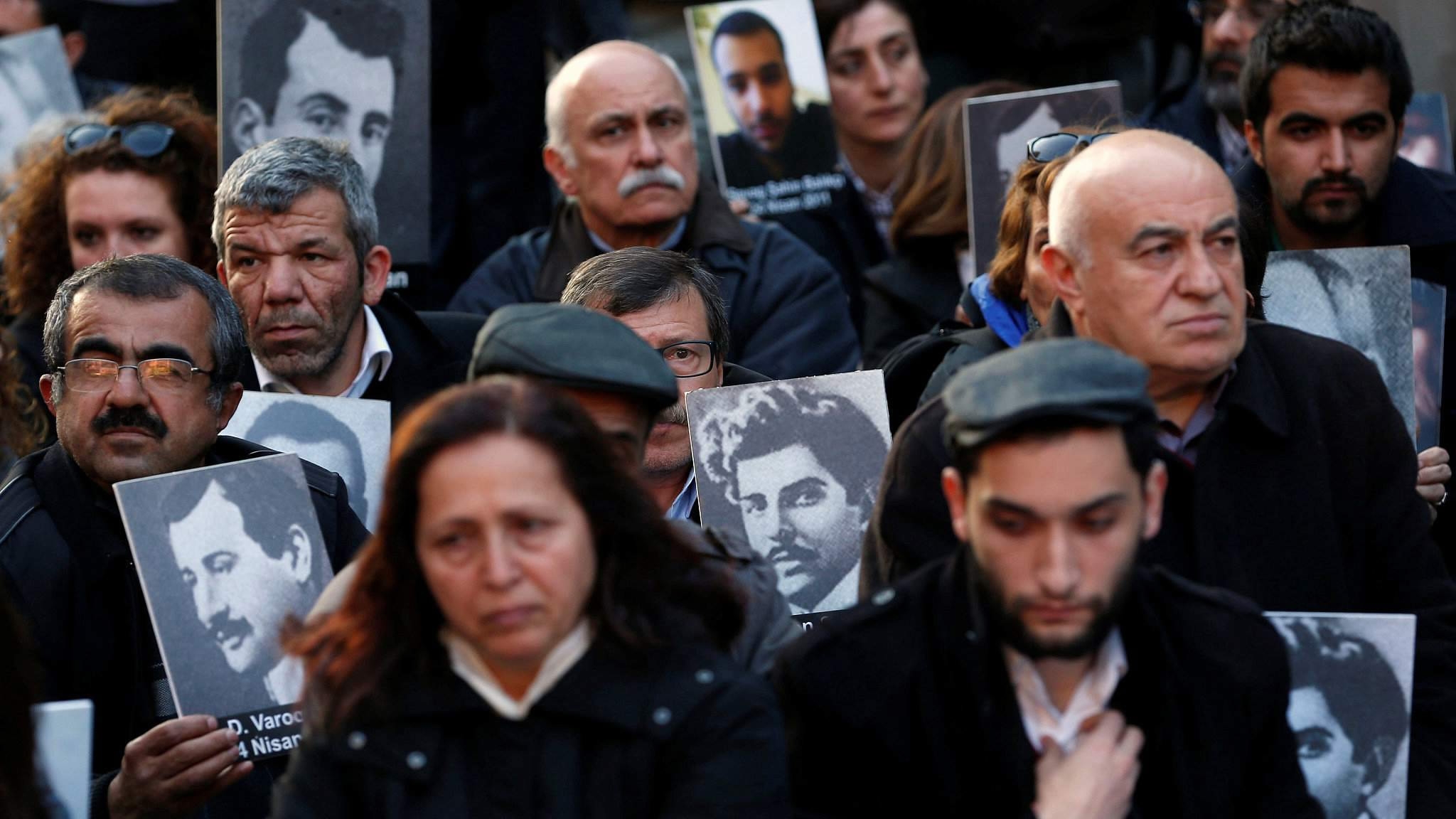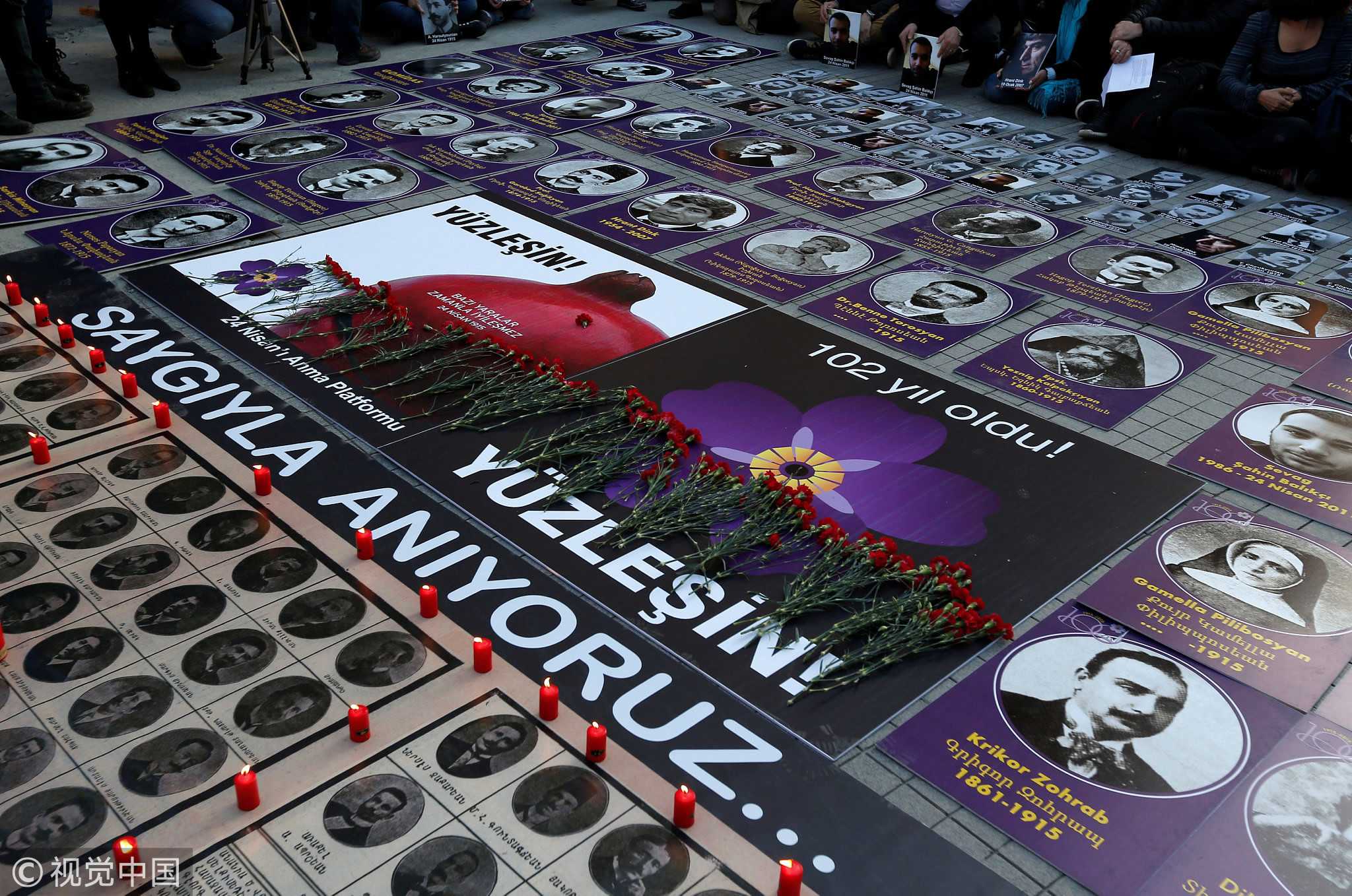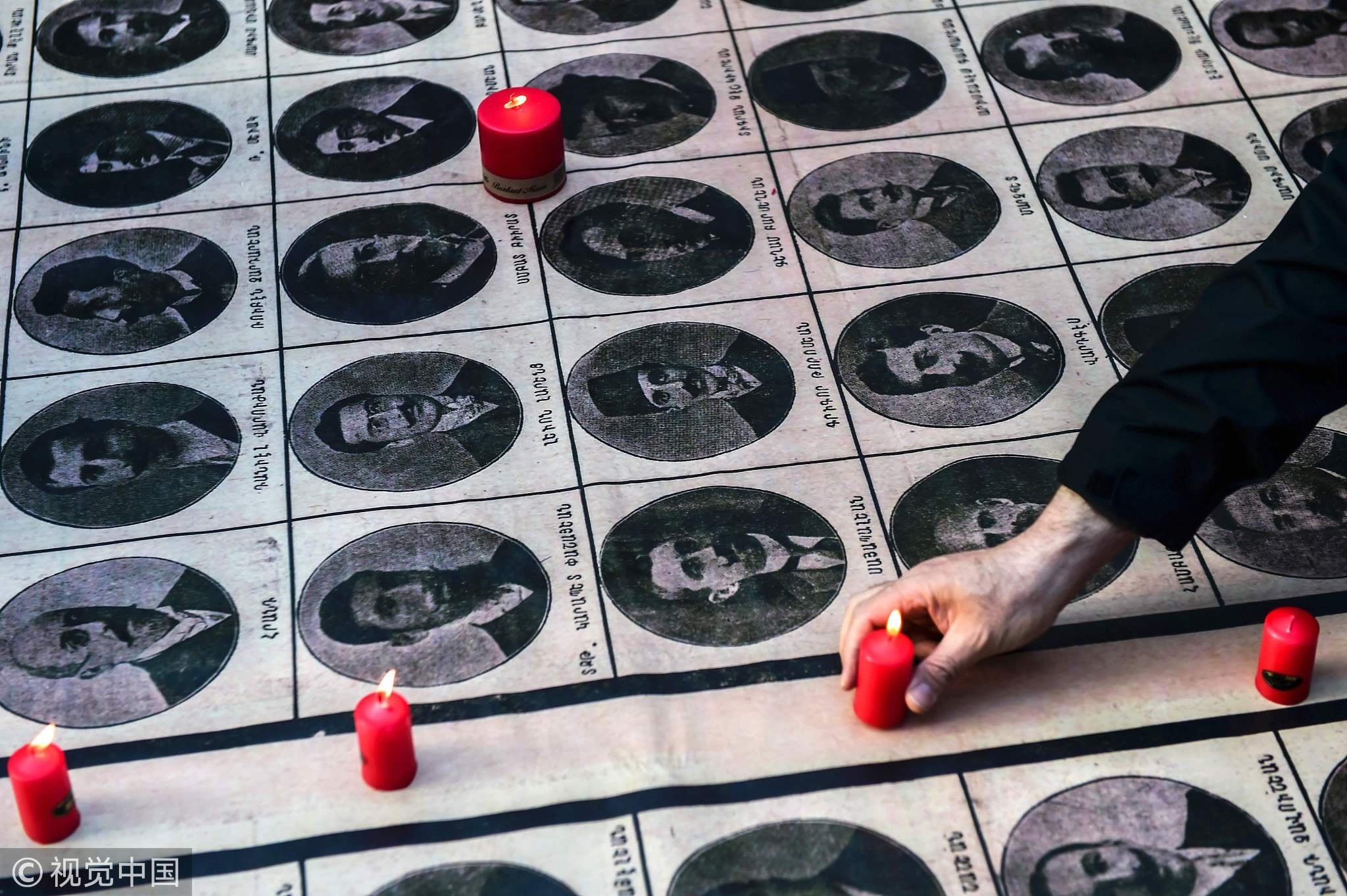
Politics
08:26, 23-Feb-2018
Dutch MPs recognize Armenian 'genocide'
CGTN

Dutch lawmakers Thursday overwhelmingly voted in favor of recognizing the early 1900s massacre of Armenians under the Ottoman Empire as "genocide," in a move likely to worsen already-strained ties with Turkey.
"The motion is accepted," parliamentary speaker Khadija Arib announced after the lower house voted 142 to 3 in favor of the proposal "that parliament in no uncertain terms speak about the Armenian genocide."
It also agreed to send a cabinet representative to Yerevan in April for the commemorations of the killings and every five years afterwards.
Armenians have long sought international recognition for the 1915-1917 killings in the Ottoman era as genocide, which they say left some 1.5 million of their people dead.

Portraits of victims placed on the ground by human rights activists are pictured during a demonstration to commemorate the 1915 mass killing of Armenians in the Ottoman Empire, in central Istanbul, Turkey April 24, 2017. /VCG Photo
Portraits of victims placed on the ground by human rights activists are pictured during a demonstration to commemorate the 1915 mass killing of Armenians in the Ottoman Empire, in central Istanbul, Turkey April 24, 2017. /VCG Photo
But Turkey, the Ottoman Empire's successor state, argues that it was a collective tragedy in which equal numbers of Turks and Armenians died.
"We strongly condemn the decision taken today by the chamber of deputies of the Netherlands to recognize as genocide the events of 1915," the Turkish foreign ministry said in a statement.
So far, parliaments in more than 20 countries, including Germany, have voted for laws or resolutions explicitly recognizing the Armenian "genocide."
But acting Dutch Foreign Minister Sigrid Kaag quickly tempered the motion, saying even though the ruling four-party coalition voted for the motion, the government will "restrain" itself.
"Cabinet will therefore not follow the House in this matter," said Kaag.

Portraits of victims placed on the ground by human rights activists are pictured during a demonstration to commemorate the 1915 mass killing of Armenians in the Ottoman Empire, in central Istanbul, Turkey April 24, 2017. /VCG Photo
Portraits of victims placed on the ground by human rights activists are pictured during a demonstration to commemorate the 1915 mass killing of Armenians in the Ottoman Empire, in central Istanbul, Turkey April 24, 2017. /VCG Photo
"We'll pay our respects to the victims and relatives of all massacres of minorities," Kaag said, stressing that the cabinet would not make a judgment on whether there had been "a genocide."
For some years, the Dutch government has taken a nuanced position, speaking of the "question of the Armenian genocide," with Kaag reiterating Thursday that that would remain the case.
A motion by the far-right Freedom Party proposing that the government must recognize the killings as "genocide" was rejected by MPs.
"It's a good thing that there's a motion, supported by almost all," Socialist Party MP Sadet Karabulut said about the vote.
"But it's sad to say that the government, because of political reasons still speak about the 'question of the Armenian genocide.' It will however be a step forward if government attends the commemorations," she said.
Source(s): AFP

SITEMAP
Copyright © 2018 CGTN. Beijing ICP prepared NO.16065310-3
Copyright © 2018 CGTN. Beijing ICP prepared NO.16065310-3